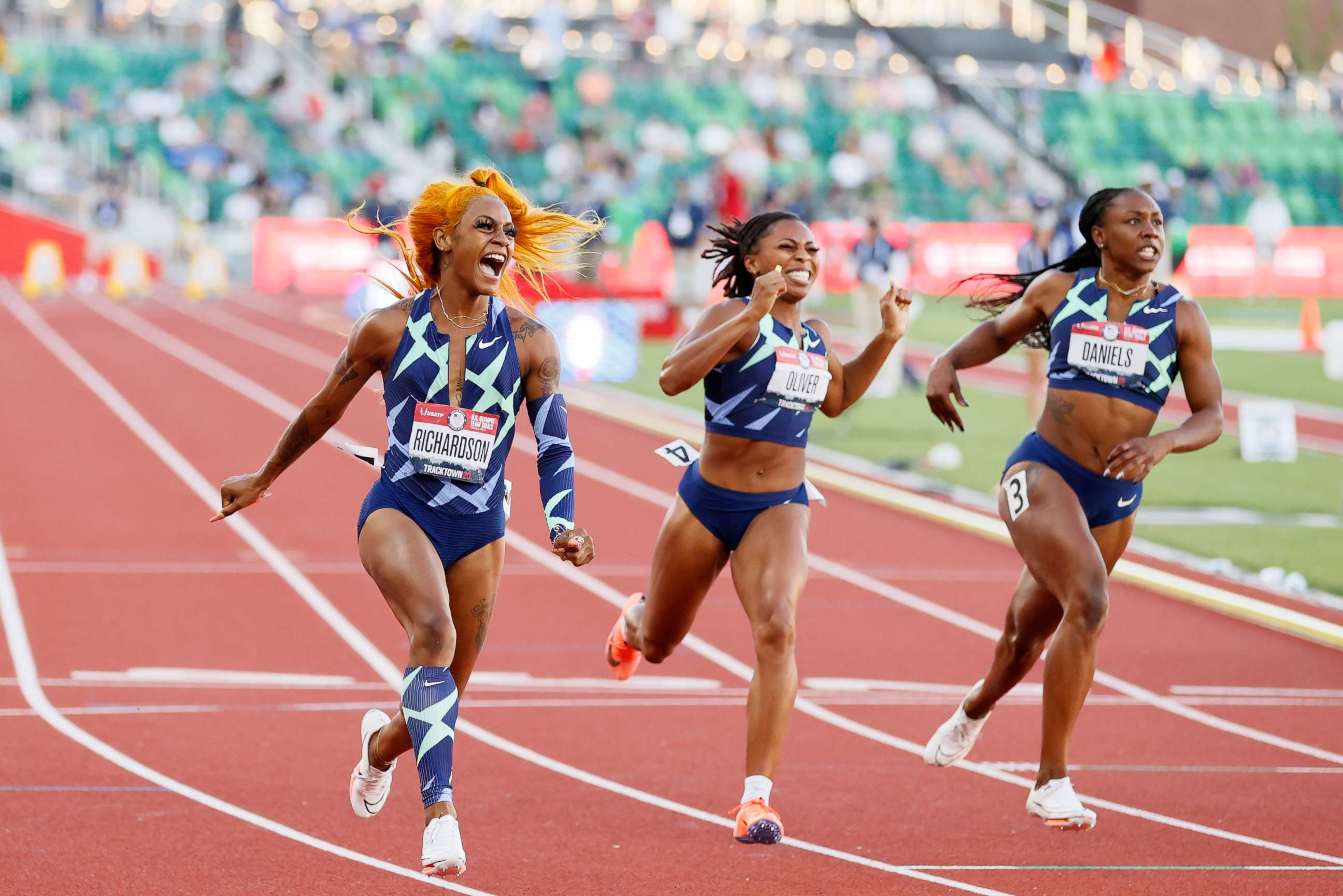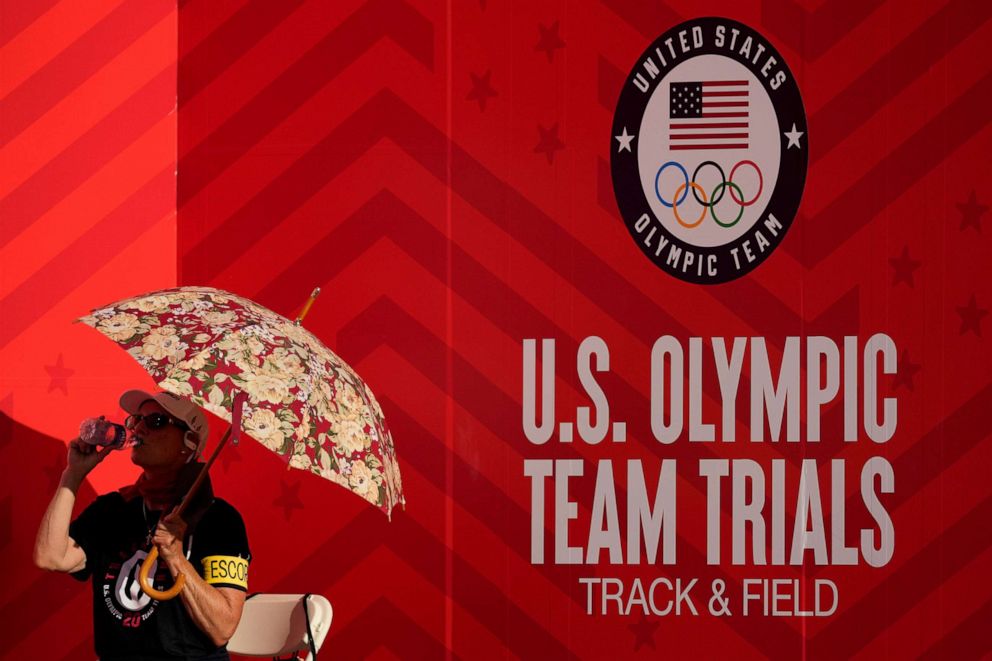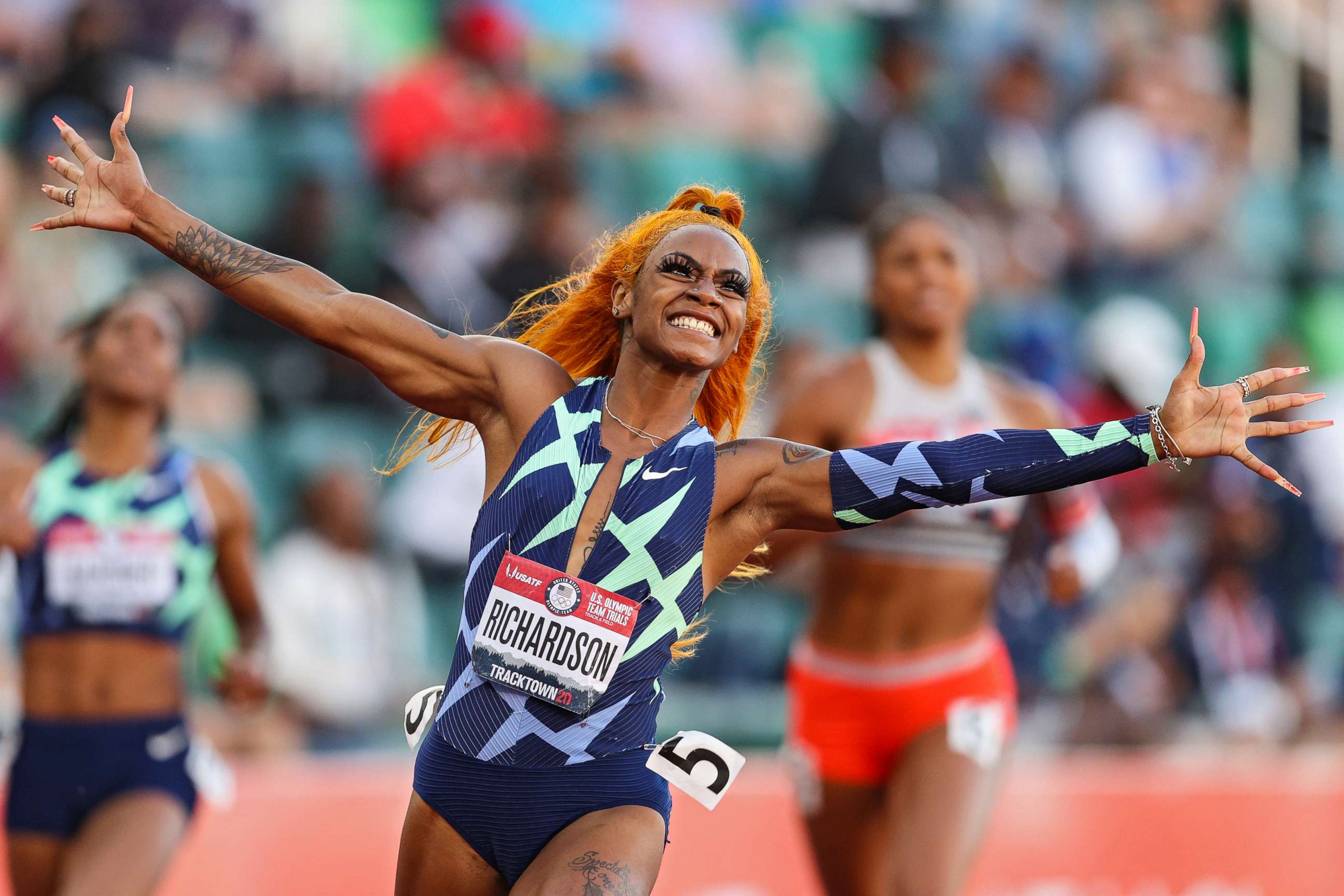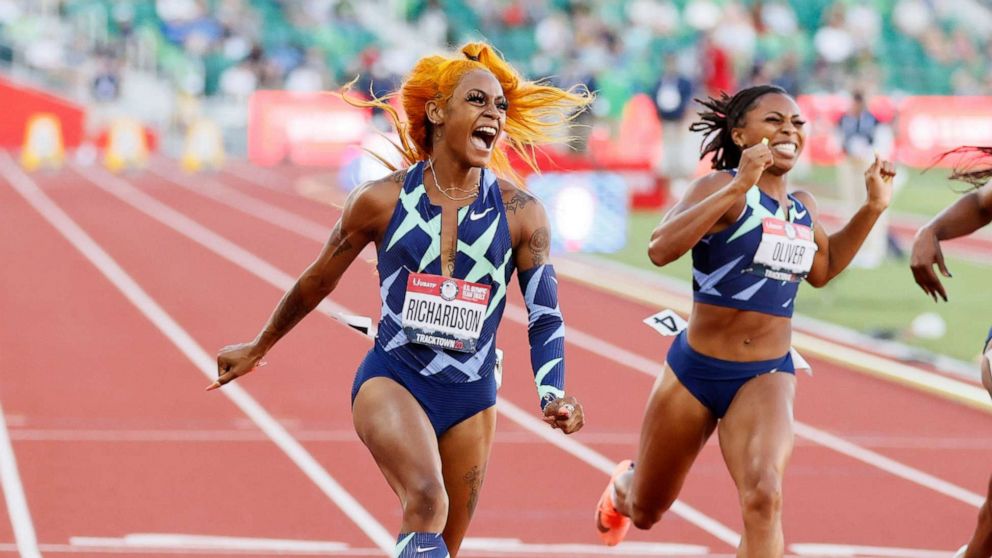Sha'Carri Richardson's Olympic suspension turns to heated debate on cannabis
The suspension of Sha'Carri Richardson, the flamboyant sprinter who finished first in the 100-meter dash at the U.S. Olympic trials, over a failed drug test for marijuana has already sparked calls from advocates for a change within the international sports world.
Although the 21-year-old told reporters she used marijuana during the Olympic trials in Oregon, which has legalized the substance for recreational use, as a way to cope with the loss of her birth mother, the U.S. Anti-Doping Agency suspended her for 30 days citing the World Anti-Doping Agency's ban on cannabis.
Marijuana legalization advocates said Richardson's case should propel the U.S. to urge international sports leaders to take a hard look at the association's rules and the reasoning behind them.
"America is the birthplace of harsh cannabis policies and like many things we exported it around the world," Matthew Schweich, the deputy director of the nonprofit group the Marijuana Policy Project, told ABC News. "There's a lot that needs to be undone."

However, Schweich and other experts warned that this battle will be a marathon and not a sprint due to the rest of the world's strict policies on marijuana use.
"I don't think you'll see the world community will flip a switch [on cannabis rules] just because the United States says it's legal," Mark Conrad, the director of the sports business program at Fordham University's Gabelli School of Business, told ABC News.
Cannabis has been on the WADA list of banned substances since 2004. A substance is banned by the association if it meets two out of three criteria: "potential to or enhances sport performance"; "actual or potential risk to health" and "against the spirit of sport." Athletes can apply for a "therapeutic use exemption" with a doctor's approval if they need medical cannabis.
In 2011, WADA published a paper in Sports Medicine explaining why marijuana fit all three criteria. As a performance enhancer, the paper stated the substance "reduces anxiety, allowing athletes to better perform under pressure." For risk to health, the paper said marijuana causes "slower reaction times and poor executive function or decision making." And as a sign of it being against the spirit of sport the paper said it's "not consistent with the athlete as a role model for young people around the world."
Schweich said that the organization's reasoning is hypocritical given that alcohol and nicotine are permitted by WADA even though they have similar effects on the body.
"The World Anti-Doping Agency is supposed to stop doping," he said. "Sha'Carri Richardson's marijuana use has nothing to do with doping."

Schweich said WADA's research on cannabis' effect on performance is questionable given other studies in recent years. A 2018 study published in The Clinical Journal of Sport Medicine found "no evidence for cannabis use as a performance-enhancing drug."
The paper's researchers looked at data from previous studies on cannabis in sports dating as far back as the 1960s. They did not take into account the number of participants in each previous study nor the magnitude of effect within each individual study when making their conclusions.
"Medical and nonmedical cannabis use among athletes reflects changing societal and cultural norms and experiences," researchers wrote in their conclusion.
Dr. Niteesh Bharara, a sports medicine and regenerative medicine physician at the Virginia Spine Institute, told ABC News that some of his athletes use marijuana for recovery. Cannabis mostly helps those patients with pain and modulating spasms, he said.
“Now, I don't see it as a performance-enhancing drug, though. It has no evidence that it does actually improve performance," Bharara told ABC News.

Conrad said Richardson's case wasn't the first time WADA's rules have come up for debate. He noted there are many medications on the banned substance list that have been questioned by athletes and coaches, such as legal decongestants and cold medicines.
However, when it came to cannabis, Conrad, who teaches law and ethics, said there is a bigger hill to climb since almost all countries, including Olympic host nation Japan, have deemed the substance illegal for any use.
"The system is an international system and the U.S. is really just a small part of that," he said.
Conrad said WADA will likely amend its rules on cannabis as more places legalize the substance, but that move will take time and more calls from world leaders.
Still, Richardson's situation has sparked some calls for change from prominent American leaders and organizations. Last week, when asked about her suspension, President Joe Biden told reporters that the "rules were the rules," but added, "whether those should remain ... is a different issue."

In announcing that Richardson would not be going to Tokyo, the U.S. Track and Field team said its athletes "must adhere to the current anti-doping code," but also said "that the merit of the World Anti-Doping Agency rules related to THC should be reevaluated."
Schweich said he's disappointed that the president hasn't taken more action to defend Richardson and protest WADA's policy. He noted that the argument would be stronger if there was a national change to the marijuana laws.
"Federal reform sends a powerful message to the world," he said.
Schweich reiterated that the federal government will have to address the issue soon as more states legalize the substance.

As of July 7, 18 states and the District of Columbia allow for recreational and medicinal marijuana for adults. In the last year, seven states have legalized it through voter referendums or legislative action.
In the meantime, Schweich said Richardson's plight has resonated with a lot of Americans who have lived through personal losses and turned to cannabis for relief.
"Sometimes it takes real lives and real stories to shift people's opinion," he said.




